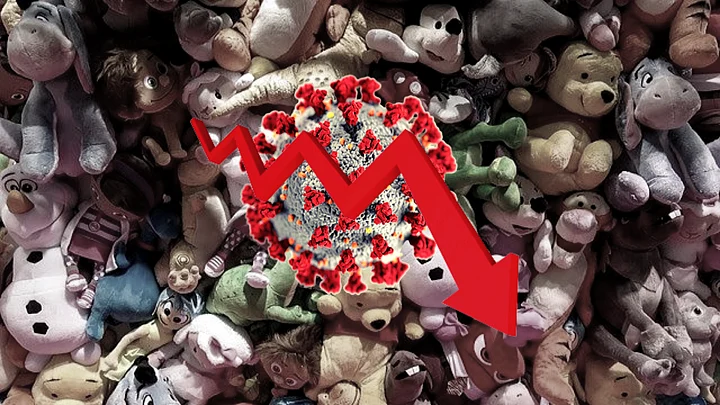As the spread of COVID-19 continues across India and other parts of the world, the novel coronavirus is adversely impacting trade and industry in several sectors.
In India, one of the industries that has faced a disproportionate hit due to the coronavirus outbreak is the domestic toy market, which is worth over Rs 10,000 crore according to the market research firm IMARC.
Unbranded products from China account for up to 90 percent of India’s toy market. With several factories in China either shut or working at reduced capacities due to the virus outbreak in the country, imports have taken a hit.
One of the major reasons for this is that Wuhan, which was the epicentre of the coronavirus outbreak, is a major manufacturing hub for soft toys.
Mounting Worries, Declining Demand
Imports have also become more expensive (for reasons we will come to in a bit), and as a result of these factors, toy distributors and retailers in India are staring at a shortage of supplies and stock.
To make things worse, even as the situation in China shows signs of improvement, the heightened fears about coronavirus in India over the last few days have resulted in fewer people visiting shopping malls and stores, thereby drastically reducing sales.
We spoke to Mukesh Jagwani, the Managing Director and CEO of WinMagic Toys, one of India’s largest toys and kids’ merchandise marketing and distribution companies. While Some of WinMagic’s biggest clients are popular retail chains such as Hamley’s and Toys “R” Us, their products are distributed to smaller retailers and stores as well.
“While the situation in China is now getting better, the retail situation in India is getting worse. For the week that ended on 8 March, our sales in retail (from retailers to consumers) have fallen by as much as 25 percent. This is because the general public is really worried, what with the restrictions in place and the panic that is there. The footfalls in malls have reduced greatly over the past week and a half.”Mukesh Jagwani, CEO of WinMagic Toys
Jagwani adds that in February too, the company’s sales had dropped by 20 percent from what they sold in January.
Imports More Expensive Too
Another factor that has been adding to the woes of toy companies and retailers in India is the increased costs of shipping their goods from China.
For example, container vessels are costing twice as much as they did earlier. Additional coronavirus-related delays due to screening and documentation issues have added to industry woes.
Not all factories are back to being functional yet either, even outside Wuhan. While Wuhan is the hub for soft toys, plastic toys are mostly made in other parts of China.
Jagwani says, “Though plastic toys are coming back to functioning, as of last week, they were only running at 70-75 percent workforce. Shipping has now been delayed by around eight weeks, which will significantly hurt our April-June peak season (which is when school holidays are on and hence our sales are high).”
The Change From February
In the middle of February, ANI reported that Delhi’s Sadar Bazar Chinese toy market was facing losses of up to 40 percent due to the coronavirus crisis in China.
At the time, toy shop owners in the capital were trying to cover their losses by hiking the prices of a large variety of toys by around 40 percent.
Rajender Sharma, the secretary of the Federation of Sadar Bazar Traders Association, and a toy shop owner himself had said then, “Since toy consignments aren’t coming in from China, we have had to increase the prices of the existing items.”
But now, over the first fortnight in March, coronavirus cases in India have increased to close to 80, and the ensuing panic and decreased demand in malls and stores is negating any benefit that even those hiked prices could achieve. The losses, instead of getting bridged, are therefore only deepening.
Stop Gap Measures?
A well-placed source with knowledge of sales at the retail chain Toys “R” Us says that sales have plummeted there over the last few days. But given that people may be turning to ordering online instead of visiting physical stores, certain retail chains are contemplating stop-gap measures to cut their losses.
Jagwani tells us, “For example, Toys “R” Us has now started a delivery system. Deliveries were always a neighbourhood store phenomenon, now big organised retail chains are considering delivering to consumers, and taking orders over the phone, which is unheard of! These are the kind of steps that retailers are now taking.”
(At The Quint, we question everything. Play an active role in shaping our journalism by becoming a member today.)
